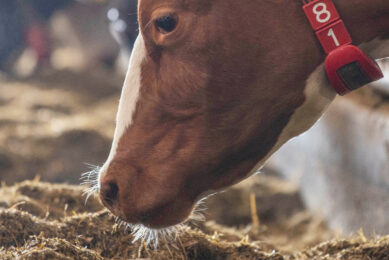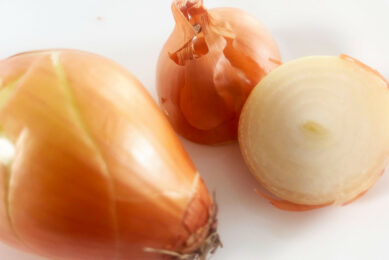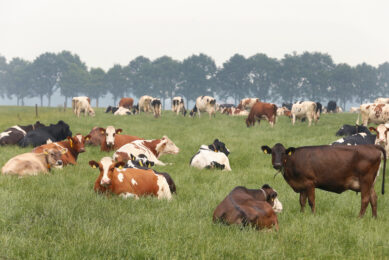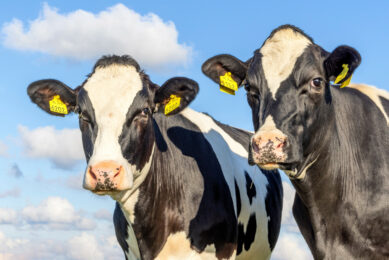Solutions to make dairy farming in Europe more resilient
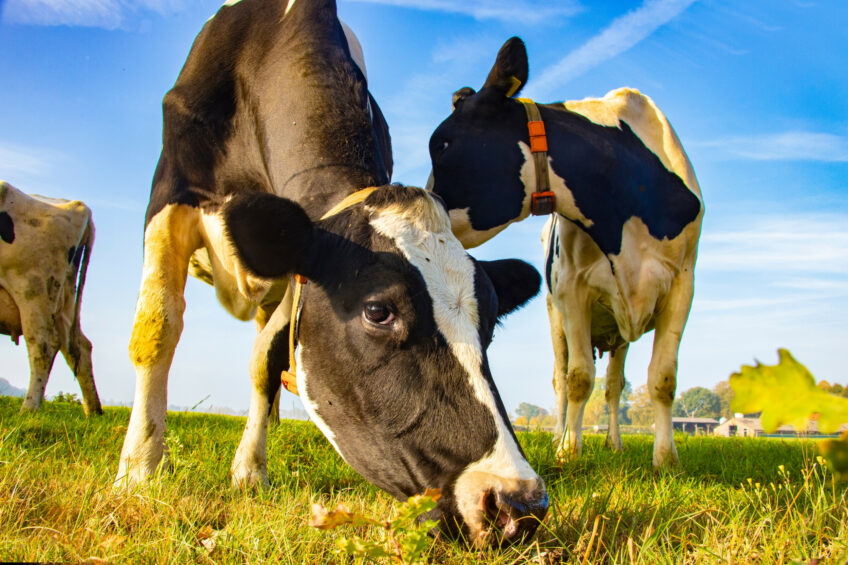
Research looking at a series of solutions to make dairy farming in Europe more resilient has found that greater technical efficiency is the key strategy to take forward at farm level.
The study, Assessing Solutions for Resilient Dairy Farming in Europe, led by researchers from Wageningen University, involved 15 European countries and looked at the impact fields of economic resilience, social resilience, technical efficiency, environment, animal welfare and health and societal perception.
It was carried out in light of the significant challenges facing the sector and the need for growth to be delivered from sustainable production systems, which provide viable incomes and have a lower impact on the environment, but which are valued by consumers and wider society.
Resilient and robust dairy
The EU project Resilience for Dairy has a key objective of developing and strengthening a self-sustainable EU Thematic Network on ‘resilient and robust dairy farms’, designed to stimulate knowledge exchange and cross-fertilisation on the topic of resilience among a wide range of farmers and stakeholders.
The project involved a range of international expert meetings, national dairy stakeholder sessions and workshops. The needs of farmers were captured in the international experts meetings and 535 stakeholders completed questionnaires. The discussions resulted in prioritising the long list of needs to 43 more widely defined farmer needs, including work/life balance, income, effective communication, improvement of animal welfare conditions, energy efficiency and reducing environmental losses. The next step was to make an inventory of solutions that contribute to the resilience criteria (socio-economic, technical efficiency and environmental/animal welfare and health).
Socio-economic solutions
Reparceling of land was seen as an urgent need in several countries where history has caused the present farmers to be composed of a whole set of small parcels spread over a wide area.
Lean management, financial management and knowledge exchange scored highly, but solutions that require additional family labour, such as on-farm milk processing and fattening of heifers, scored low in this area.
Technical efficiency solutions
There was a high interest in improving hoof trimming and calf colostrum management. Monitoring and early detection of diseases, like health and fertility characteristics of cows, as well as a tailored manure application and cross-breeding with beef cattle, were also in the 6 top choices.
On the other hand, tillage to reduce erosion and grazing, combined with automatic milking, were rated low, although such practices were considered important in some areas of Europe
Environmental/animal welfare
There was a great interest in practices related to housing the animals and improving health and fertility. Biodiversity has become a societal and political topic of attention and is expressed as a challenge to work on.
But feed additives to reduce rumen methane and dried manure as bedding were considered to be unfriendly practices for animal health and welfare and were expected to receive a low appreciation from society, although these solutions received a positive score for environmental resilience.
The researchers looked at geographic trends with experts from south-eastern Europe tending to score, on average, the solutions’ contributions to the various impact fields of resilience somewhat higher than the experts from north-western Europe. This was especially the case for the scores on technical efficiency solutions. Experts from south-eastern Europe expected a more positive effect on the farm business from those practices and techniques, except for social life practices, which were favoured by experts from western Europe.
They also looked to see if there were any major changes in perceptions from the start to the end of the 2-year study. They found some changes in individual countries:
- In Slovenia, the recent public discussions about the introduction of an animal welfare police force, linked to a non-government organisation, caused much more focus on solutions related to communication with society and animal welfare.
- In Denmark, there was an intense political debate on implementing a greenhouse gas tax on agricultural emissions, with farmers and stakeholders concerned due to the high carbon dioxide levels associated with enteric methane emissions from cattle.
- In the Netherlands, the public discussion about the role of the dairy sector in the environmental domain, especially about manure management, caused the national group to focus more on social health.
The study also found that farmers and stakeholders focused on practices such as exploring renewable energy production, improving communication with society, exploring added-value products and using sexed semen and cross breeding with beef breeds.
Experts opted more for financial and lean management, manure application precision farming techniques, barns for more animal welfare and biodiversity implementation. Technical practice and techniques covering strategic hoof trimming, early detection of diseases, monitoring of health and fertility and calf rearing were also given greater priority by experts and stakeholders compared to farmers.
Join 13,000+ subscribers
Subscribe to our newsletter to stay updated about all the need-to-know content in the dairy sector, two times a week.



